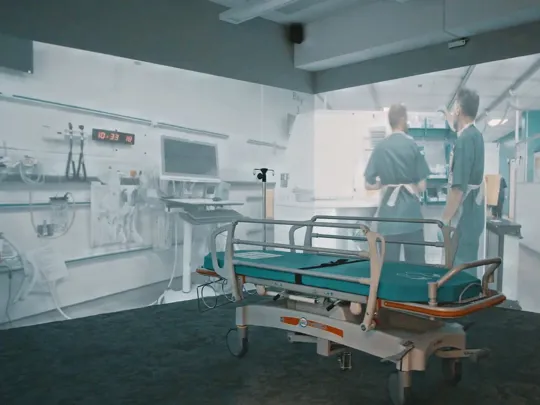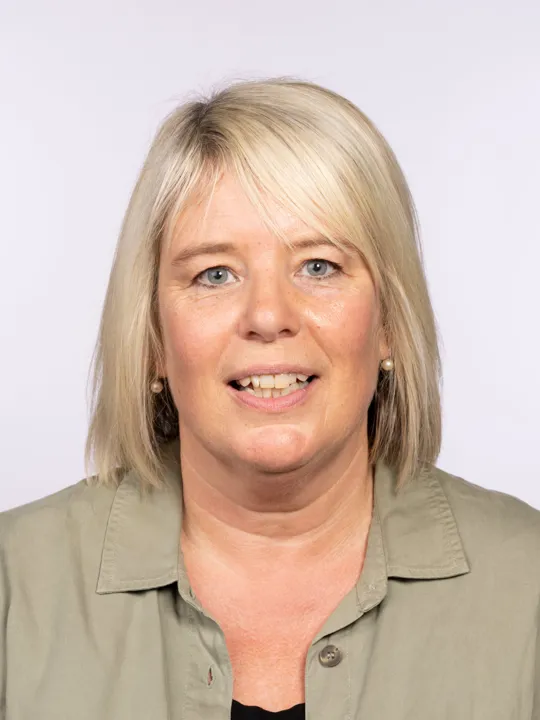October 2022
Mental health nursing degree launched to meet “desperate” shortage of frontline workers
By Melanie Hall
Share post:Read time: approx 5 mins
University College Birmingham has invested in a raft of cutting-edge technology to support students on its new mental health nursing degree, launched to train a much-needed workforce of qualified nursing staff to provide support in the region.
A 360° immersive video room will give mental health nursing students access to 200 interactive health and social care backgrounds, while virtual reality software, simulation manikins and mental health-focused online case studies and scenarios are designed to help them grow in confidence.
Students on the Mental Health Nursing BSc (Hons) degree, which welcomes its first cohort in September 2023, will go on a range of diverse placements to experience care across the lifespan and different fields of practice to broaden who they can help.
"Around 20% of the vacant nursing positions in the NHS are in mental health nursing, a desperate shortage of qualified nurses with specialist expertise in this field"
Placements could include accident and emergency departments, mental health wards and secure units, youth centres, Child and Adolescent Mental Health (CMH) services, prisons and care homes for patients with dementia and requiring end of life care.
Registered Nurse and senior lecturer Helen Eldridge, who was on the frontline of mental health support for 22 years herself, will be programme lead for the three-year degree course at the University.
“Following Covid-19, mental health problems have gotten a lot worse, globally and in the UK, but especially so in the West Midlands,” said Helen, who supported people with complex mental health needs as a clinical lead at a Child and Adolescent Mental Health Service (CAMHS) and is a specialist in Learning Disabilities nursing.
“We have seen the number of children and adolescents with mental health problems shoot through the roof and waiting times to see a psychiatric team in A&E are many hours. In the community, referral time to see a specialist team can be at least six months. Many service users cannot wait this long.”

Our 360° immersive video room simulates a wide variety of health and care settings
According to the World Health Organisation (WHO), around 10% of the global population is living with some form of mental health condition, with one in four people in the UK experiencing a mental health problem each year. However, the workforce just isn’t there.
“Around 20% of the vacant nursing positions in the NHS are in mental health nursing, a desperate shortage of qualified nurses with specialist expertise in this field," said Helen. "Dedicated nurses who can support patients while spotting problems that need specific treatments such as anxiety, depression or addictive behaviours.”

Senior lecturer Helen Eldridge has more than 20 years of experience as a Registered Mental Health Nurse
Crucial connection
Developed with Birmingham and Solihull Mental Health NHS Trust, Cygnet Healthcare and Birmingham and Solihull practice partners, the new degree will, crucially, emphasise the link between physical and mental health.
“Some people need short-term, intensive support after a crisis or breakdown,” said Helen, who also teaches on the University’s Adult Nursing BSc (Hons) course. “Others need medical interventions and therapy to help get their lives back on track.
“What is important is for our students to understand the direct correlation between physical and mental health, which is where the system can break down. More often than not, physical problems lead to mental problems and vice versa.
“We will be giving students access to a whole range of placement settings so they can really understand and develop support skills to deliver safe, holistic compassionate care, and assess and manage patients with complex health care needs.
“And they will learn their clinical skills in our Health Skills and Simulation Suite, using manikins and other skills and simulation equipment to provide low and high-fidelity simulation and virtual reality, making their experience more meaningful in the teaching and learning environment.”
Focus on STEM
The new Nursing and Midwifery Council-accredited degree joins our growing portfolio of degrees in STEM subjects, including engineering and construction.
Quite uniquely, nursing students are taught in smaller groups to personalise training, and financially, they are eligible to receive a £5,000 non-repayable grant and up to £3,000 to support childcare costs, whether they are starting out or changing career.
Winning University of the Year and Best Student Support at the 2022 Whatuni Student Choice Awards – the only UK awards voted for by students – University College Birmingham has invested £150 million in its facilities in the last 10 years to support its higher – and further – education provision.
University College Birmingham offers a range of industry-led college and degree-level courses within our Department of Health.
Check out our latest news stories

Chelmsley Wood culinary school makes its mark
Chelmsley Wood culinary school hoardings revealed.
Read more
MP visit champions collaboration as key to changing outcomes for young people
Sarah Smith MP visit champions collaboration as key to improving outcomes for young people.
Read more
Blog | The 9 things we wish we knew before starting university
From staying organised to looking after our wellbeing, there’s a lot we wish we’d thought about before starting our degrees, so…
Read more
HIRED successfully retains Matrix accreditation
Retaining the gold standard in accreditation for its advice and guidance reaffirms the quality of support offered to students.
Read more
Blog | How to pursue a career in healthcare without a degree
Did you know you don’t always need a degree to work in healthcare?
Read more
Blog | Nursing Associate vs Registered Nurse: choosing the right path for you
Not sure which nursing course is for you? This blog will help you to find out which role fits your goals, lifesty…
Read more